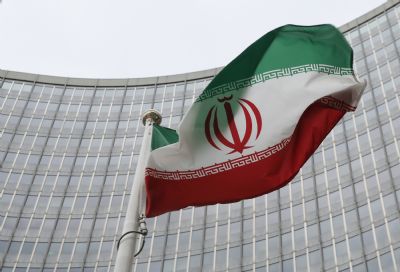"Although candidate Donald Trump repeatedly criticized Barack Obama's Iran nuclear agreement, his administration has twice decided to remain in the deal. It so certified to Congress, most recently in July, as required by law. Before the second certification, Trump asked repeatedly for alternatives to acquiescing yet again in a policy he clearly abhorred. But no such options were forthcoming, despite 'a sharp series of exchanges' between the president and his advisers, as the New York Times and similar press reports characterized it...
Here it is... There is no need to wait for the next certification deadline in October. Trump can and should free America from this execrable deal at the earliest opportunity...
[W]e must explain the grave threat to the U.S. and our allies, particularly Israel. The JCPOA's vague and ambiguous wording; its manifest imbalance in Iran's direction; Iran's significant violations; and its continued, indeed, increasingly, unacceptable conduct at the strategic level internationally demonstrate convincingly that the JCPOA is not in the national-security interests of the United States. We can bolster the case for abrogation by providing new, declassified information on Iran's unacceptable behavior around the world...
We will need to assure the international community that the U.S. decision will in fact enhance international peace and security, unlike the JCPOA, the provisions of which shield Iran's ongoing efforts to develop deliverable nuclear weapons.
The Administration should announce that it is abrogating the JCPOA due to significant Iranian violations, Iran's unacceptable international conduct more broadly, and because the JCPOA threatens American national-security interests. The Administration's explanation in a 'white paper' should stress the many dangerous concessions made to reach this deal, such as allowing Iran to continue to enrich uranium; allowing Iran to operate a heavy-water reactor; and allowing Iran to operate and develop advanced centrifuges while the JCPOA is in effect. Utterly inadequate verification and enforcement mechanisms and Iran's refusal to allow inspections of military sites also provide important reasons for the Administration's decision...
This effort should be the Administration's highest diplomatic priority, commanding all necessary time, attention, and resources. We can no longer wait to eliminate the threat posed by Iran. The Administration's justification of its decision will demonstrate to the world that we understand the threat to our civilization; we must act and encourage others to meet their responsibilities as well."
August 28, 2017
How to Get Out of the Iran Nuclear Deal

Iranian flag at the International Atomic Energy Agency in Vienna
Date
August 28, 2017
Title
How to Get Out of the Iran Nuclear Deal, National Review
Author(s)
John R. Bolton
Original Source
